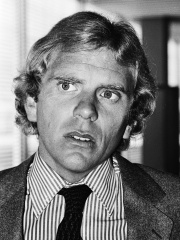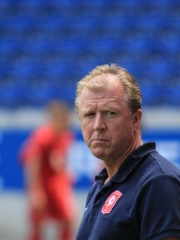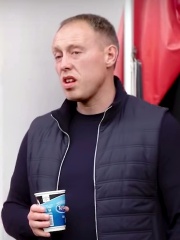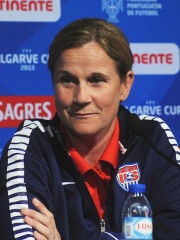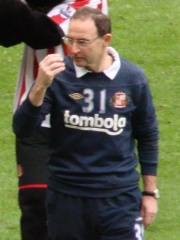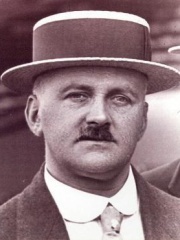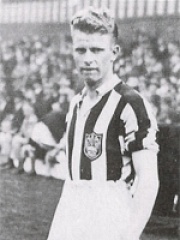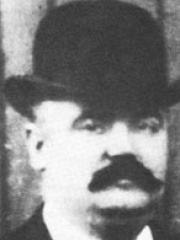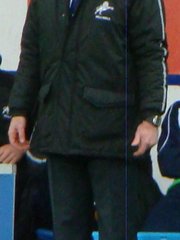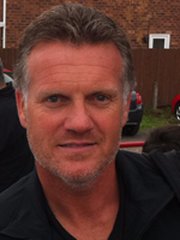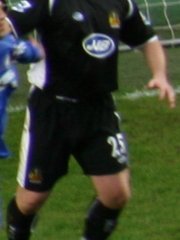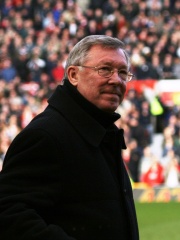
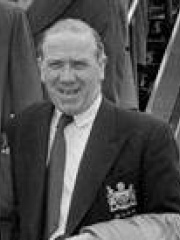
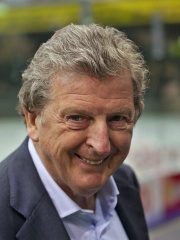
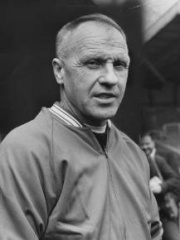
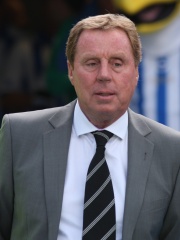
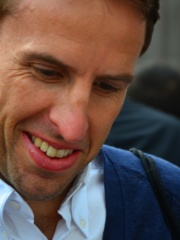
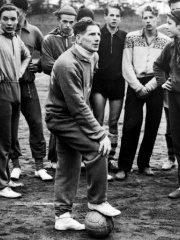
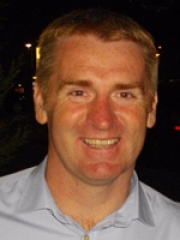
The Most Famous
COACHES from United Kingdom
This page contains a list of the greatest British Coaches. The pantheon dataset contains 471 Coaches, 52 of which were born in United Kingdom. This makes United Kingdom the birth place of the 2nd most number of Coaches.
Top 10
The following people are considered by Pantheon to be the top 10 most legendary British Coaches of all time. This list of famous British Coaches is sorted by HPI (Historical Popularity Index), a metric that aggregates information on a biography's online popularity. Visit the rankings page to view the entire list of British Coaches.

1. Alex Ferguson (b. 1941)
With an HPI of 80.69, Alex Ferguson is the most famous British Coach. His biography has been translated into 90 different languages on wikipedia.
Sir Alexander Chapman Ferguson (born 31 December 1941) is a Scottish former professional football manager and player, best known for managing Manchester United from 1986 to 2013. He is widely regarded as one of the greatest managers of all time, having won more trophies than any other manager in the history of football. Ferguson is often credited for valuing youth during his time at Manchester United, particularly in the 1990s with the "Class of '92", who contributed to making the club one of the most successful in the world. Ferguson played as a forward for several Scottish clubs, including Dunfermline Athletic and Rangers. While playing for Dunfermline, he was the top goalscorer in the Scottish league during the 1965–66 season. Towards the end of his playing career, he also worked as a coach, then started his managerial career with East Stirlingshire and St Mirren. Ferguson then enjoyed a highly successful period as manager of Aberdeen, winning three Scottish league championships, four Scottish Cups and both the UEFA Cup Winners' Cup and the UEFA Super Cup in 1983. He briefly managed Scotland following the death of Jock Stein, taking the team to the 1986 World Cup. Ferguson was appointed manager of Manchester United in November 1986. During his 26 years with Manchester United, he won 38 trophies, including 13 Premier League titles, five FA Cups, and two UEFA Champions League titles. He was knighted in the 1999 Queen's Birthday Honours list for his services to the game. Ferguson is the longest-serving manager of Manchester United, having overtaken Sir Matt Busby's record on 19 December 2010. He retired from management at the end of the 2012–13 season, having won the Premier League in his final season.

2. Matt Busby (1909 - 1994)
With an HPI of 66.31, Matt Busby is the 2nd most famous British Coach. His biography has been translated into 41 different languages.
Sir Alexander Matthew Busby (26 May 1909 – 20 January 1994) was a Scottish football player and manager, who managed Manchester United between 1945 and 1969 and again for the second half of the 1970–71 season. He was the first manager of an English team to win the European Cup and is widely regarded as one of the greatest managers of all time. Before going into management, Busby was a player for two of Manchester United's greatest rivals, Manchester City and Liverpool. During his time at City, Busby played in two FA Cup Finals, winning one of them. After his playing career was interrupted by the Second World War, Busby was offered the job of assistant coach at Liverpool, but they were unwilling to give him the control that he wanted over the first team. As a result, he took the vacant manager's job at Manchester United instead, where he built the famous Busby Babes team that won successive Football League First Division titles and challenged for the European Cup. Eight of these players died in the Munich air disaster, but Busby rebuilt the team and won several more First Division titles as well as other domestic cups before he took United to European Cup glory a decade later. In a total of 25 years with the club, he won 13 trophies including five league championships and the European Cup.

3. Roy Hodgson (b. 1947)
With an HPI of 65.86, Roy Hodgson is the 3rd most famous British Coach. His biography has been translated into 47 different languages.
Roy Hodgson (born 9 August 1947) is an English former football manager and player. He has managed 22 different teams in eight countries, beginning in Sweden with Halmstad in the 1976 season. He later guided the Switzerland national team to the last 16 of the 1994 World Cup and qualification for Euro 1996; Switzerland had not qualified for a major tournament since the 1960s. From 2006 to 2007, he managed the Finland national team, guiding them to their highest-ever FIFA ranking of 33rd place and coming close to qualifying for a major tournament for the first time in their history. He managed the England national team from May 2012 to June 2016. Other clubs that Hodgson has managed include Inter Milan, Blackburn Rovers, Malmö, Grasshoppers, Copenhagen, Udinese, Fulham, Liverpool, West Bromwich Albion, Watford, and boyhood club Crystal Palace, whom he managed for 200 games across two spells. Hodgson served several times as a member of UEFA's technical study group at the European Championships and was also a member of the FIFA technical study group at the 2006 World Cup. Hodgson speaks five languages, and has worked as a television pundit in several of the countries in which he has coached.

4. Bill Shankly (1913 - 1981)
With an HPI of 65.01, Bill Shankly is the 4th most famous British Coach. His biography has been translated into 48 different languages.
William Shankly (2 September 1913 – 29 September 1981) was a Scottish football player and manager who is best known for his time as manager of Liverpool. Shankly brought success to Liverpool, gaining promotion to the First Division and winning three League Championships and the UEFA Cup. He laid foundations on which his successors Bob Paisley and Joe Fagan were able to build by winning seven league titles and four European Cups in the ten seasons after Shankly retired in 1974. A charismatic, iconic figure at the club, his oratory stirred the emotions of the fanbase. In 2019, 60 years after Shankly arrived at Liverpool, Tony Evans of The Independent wrote, "Shankly created the idea of Liverpool, transforming the football club by emphasising the importance of the Kop and making supporters feel like participants". Shankly came from a small Scottish mining community and was one of five brothers who played football professionally. He played as a ball-winning right-half and was capped twelve times for Scotland, including seven wartime internationals. He spent one season at Carlisle United before spending the rest of his career at Preston North End, with whom he won the FA Cup in 1938. His playing career was interrupted by his service in the Royal Air Force during the Second World War. He became a manager after he retired from playing in 1949, returning to Carlisle United. He later managed Grimsby Town, Workington and Huddersfield Town before moving to become Liverpool manager in December 1959. Shankly took charge of Liverpool when they were in the Second Division and rebuilt the team into a major force in English and European football. He led Liverpool to the Second Division Championship to gain promotion to the top-flight First Division in 1962, before going on to win three First Division Championships, two FA Cups, four Charity Shields and one UEFA Cup. It was during Shankly's tenure that the club changed to an all-red home strip, and "You'll Never Walk Alone" became the club's anthem. Shankly announced his surprise retirement from football a few weeks after Liverpool had won the 1974 FA Cup Final, having managed the club for 15 years, and was succeeded by his long-time assistant Bob Paisley. He led the Liverpool team out for the last time at Wembley for the 1974 FA Charity Shield. He died seven years later, aged 68. Considered one of the greatest football managers of all time, Shankly was among the inaugural inductees into the English Football Hall of Fame in 2002, and the Scottish Football Hall of Fame in 2004.
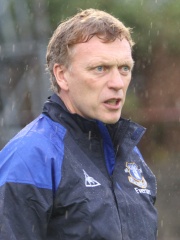
5. David Moyes (b. 1963)
With an HPI of 61.46, David Moyes is the 5th most famous British Coach. His biography has been translated into 55 different languages.
David William Moyes (born 25 April 1963) is a Scottish professional football manager and former player, who is the manager of Premier League club Everton. He was the 2003, 2005 and 2009 League Managers Association Manager of the Year. He is on the committee for the League Managers Association in an executive capacity. Moyes made over 540 league appearances as a centre-back in a playing career that began with Celtic, where he won a championship medal. He then played for Cambridge United, Bristol City, Shrewsbury Town, and Dunfermline Athletic, ending his playing career with Preston North End. He became a coach at Preston, working his way up before taking over as manager in 1998, his first managerial position. Moyes led Preston to the Division Two title in 1999–2000 and the Division One play-off final the following season. Moyes became manager of Everton in 2002. The club managed a fourth-place finish in the league in 2004–05, their highest since 1988, and played in the qualifying rounds for the UEFA Champions League the following season, the first time since 1970–71. Moyes led Everton to a runners-up finish in the 2008–09 FA Cup, their best performance in the competition since winning in 1995. Everton consistently finished between fifth and eighth in the league under Moyes, and at the time of his departure, was the longest-serving manager in the league behind Sir Alex Ferguson and Arsène Wenger, at 11 years and 3 months. Moyes succeeded Ferguson as manager of Manchester United in June 2013, but with the club 7th in the league in April 2014 and unable to qualify for European competition, he was sacked. Moyes was appointed head coach of Spanish club Real Sociedad in November 2014, but was sacked after a year in charge. In 2016, he replaced Sam Allardyce as manager of Sunderland, but resigned at the end of the 2016–17 season after the club was relegated to the EFL Championship. Moyes was appointed manager of West Ham in November 2017 and led the club out of the relegation zone to a 13th-place finish, but left at the end of the season when his contract was not renewed. He was appointed at West Ham for a second time in December 2019, following the sacking of Manuel Pellegrini. During his second stint, West Ham achieved two consecutive top-seven finishes in the Premier League, before victory in the 2022–23 UEFA Europa Conference League, beating Fiorentina in the final to achieve the club's first major silverware in 43 years. Moyes left West Ham in 2024, and returned to Everton the following year.

6. Harry Redknapp (b. 1947)
With an HPI of 61.27, Harry Redknapp is the 6th most famous British Coach. His biography has been translated into 45 different languages.
Henry James Redknapp (born 2 March 1947) is an English former football manager and player. He has previously managed AFC Bournemouth, West Ham United, Portsmouth, Southampton, Tottenham Hotspur, Queens Park Rangers and Birmingham City. In his second spell at Portsmouth, he managed the side that won the 2008 FA Cup. At the conclusion of the 2009–10 season, he guided Tottenham into the UEFA Champions League. Redknapp announced his retirement from football management in 2017. His son, Jamie Redknapp, played under him at Bournemouth and Southampton. He is also uncle to Frank Lampard, who played under him at West Ham United.

7. Gareth Southgate (b. 1970)
With an HPI of 57.93, Gareth Southgate is the 7th most famous British Coach. His biography has been translated into 54 different languages.
Sir Gareth Southgate (born 3 September 1970) is an English former professional football manager and player, who played as a defender and midfielder. A Crystal Palace academy graduate, Southgate made his senior debut for the club in 1990, and was appointed club captain in 1993, winning the First Division championship that season (1993–94). Having made over 150 appearances for Palace, he was signed by Aston Villa in 1995, winning the League Cup in 1996 and reaching the 2000 FA Cup final, before departing for Middlesbrough, where he was appointed captain in 2002 and won another League Cup in 2004, as well as reaching the 2006 UEFA Cup final. Internationally, Southgate made 57 appearances for the England team between 1995 and 2004. He played every game of England's campaign in UEFA Euro 1996, though his penalty miss sent England out in the semi-final; he also featured in both the 1998 FIFA World Cup and UEFA Euro 2000. He retired in 2006 at the age of 35, having made more than 500 league appearances across his three clubs. Immediately following his retirement, Southgate was appointed manager of Middlesbrough, staying in the role until his dismissal in 2009. He also managed the England under-21 team from 2013 to 2016, before succeeding Sam Allardyce as the senior team's manager in 2016. He led England to the 2018 FIFA World Cup semi-finals, the UEFA Euro 2020 final, the 2022 FIFA World Cup quarter-finals, and the UEFA Euro 2024 final. In 2018 and 2021 he won the BBC Sports Personality of the Year Coach Award.

8. George Raynor (1907 - 1985)
With an HPI of 55.75, George Raynor is the 8th most famous British Coach. His biography has been translated into 16 different languages.
George Sidney Raynor (13 January 1907 – 24 November 1985) was an English professional footballer and manager. One of his greatest achievements was taking the Sweden men's national football team to a World Cup final, and he also managed them to an Olympic gold medal. Before the 1966 FIFA World Cup, he was the only Englishman to take a national team to a final of a World Cup. His World Cup campaign with Sweden is the best result ever for a non-national manager in the history of the tournament, along with Austrian Ernst Happel's second place with Netherlands in 1978, twenty years after Raynor's.

9. Dean Smith (b. 1971)
With an HPI of 55.39, Dean Smith is the 9th most famous British Coach. His biography has been translated into 24 different languages.
Dean Smith (born 19 March 1971) is an English professional football manager and former player who is the head coach of Major League Soccer club Charlotte FC. Smith began his playing career as a defender with Walsall in 1989, where over five years he played 166 league and cup games. After signing for Hereford United in 1994, three years and 146 appearances later, he moved on to Leyton Orient. In six years with Orient, he made 309 appearances in all competitions before earning a move to Sheffield Wednesday in 2003. After a season with Wednesday, he moved on to Port Vale, retiring in January 2005. He scored 54 goals in 566 league games in a 16-year career in the Football League. Returning to Leyton Orient, he worked as assistant manager until January 2009. In July 2009, he was appointed Head of Youth at Walsall before becoming manager in January 2011. He took Walsall from the relegation zone to safety in his first four months in charge. He took Walsall to the 2015 final of the Football League Trophy before leaving the club to manage Brentford in November 2015. Smith was appointed as Aston Villa manager in October 2018 and took the club from 15th in the Championship to the Premier League via the play-offs in the 2018–19 season, and then to the 2020 EFL Cup final. Aston Villa dismissed him in November 2021 and soon joined Norwich City for 13 months in charge. He was appointed as Leicester City manager on a short-term basis in April 2023. He was appointed head coach of American club Charlotte FC in December 2023.
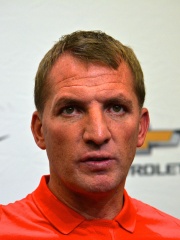
10. Brendan Rodgers (b. 1973)
With an HPI of 55.30, Brendan Rodgers is the 10th most famous British Coach. His biography has been translated into 48 different languages.
Brendan Rodgers (born 26 January 1973) is a Northern Irish professional football manager and former player who is the head coach of Saudi Pro League side Al Qadsiah. Rodgers began his career as a defender at Ballymena United, where he stayed until he was signed by Reading at the age of 18, although a genetic knee condition forced him to retire at age 20. He remained at Reading as a coach and then academy director, and continued to play non-league football at Newport IOW, Witney Town and Newbury Town for several years. After a period travelling around Spain to study coaching methods, he was invited by José Mourinho to join Chelsea as youth manager in 2004, later being promoted to reserve manager in 2006. In 2008, he was appointed manager of Watford, where he remained until he accepted an offer to become manager of his former club Reading in 2009. He left the club by mutual consent after some disappointing results six months later. He returned to management with Swansea City in 2010, leading the club to promotion to the Premier League, the first Welsh team to do so, before guiding them to finish 11th the following season. On 1 June 2012, Rodgers became the new manager of Liverpool, whom he led to runners-up position in the league in the 2013–14 season before his dismissal in October 2015. Rodgers became manager of Celtic in May 2016 and led them to an undefeated domestic season in his first year, and trebles in both of his first two seasons. He left Celtic for Leicester City in February 2019, winning the 2021 FA Cup in his second full season, before he left by mutual consent in April 2023. He returned to Celtic in June 2023 and won two further Scottish league titles in his first two seasons back at the club, before resigning in October 2025.
People
Pantheon has 52 people classified as British coaches born between 1859 and 1982. Of these 52, 45 (86.54%) of them are still alive today. The most famous living British coaches include Alex Ferguson, Roy Hodgson, and David Moyes. The most famous deceased British coaches include Matt Busby, Bill Shankly, and George Raynor. As of April 2024, 4 new British coaches have been added to Pantheon including Dave Watson, Kenny Jackett, and Andy Sinton.
Living British Coaches
Go to all RankingsAlex Ferguson
1941 - Present
HPI: 80.69
Roy Hodgson
1947 - Present
HPI: 65.86
David Moyes
1963 - Present
HPI: 61.46
Harry Redknapp
1947 - Present
HPI: 61.27
Gareth Southgate
1970 - Present
HPI: 57.93
Dean Smith
1971 - Present
HPI: 55.39
Brendan Rodgers
1973 - Present
HPI: 55.30
Bob Houghton
1947 - Present
HPI: 55.02
Steve McClaren
1961 - Present
HPI: 54.58
Steve Cooper
1979 - Present
HPI: 54.48
Jill Ellis
1966 - Present
HPI: 53.30
Martin O'Neill
1952 - Present
HPI: 53.21
Deceased British Coaches
Go to all RankingsMatt Busby
1909 - 1994
HPI: 66.31
Bill Shankly
1913 - 1981
HPI: 65.01
George Raynor
1907 - 1985
HPI: 55.75
Ernest Mangnall
1866 - 1932
HPI: 53.93
Peter Doherty
1913 - 1990
HPI: 50.32
Tom Watson
1859 - 1915
HPI: 50.23
Walter Crickmer
1899 - 1958
HPI: 48.71
Newly Added British Coaches (2025)
Go to all RankingsDave Watson
1961 - Present
HPI: 36.64
Kenny Jackett
1962 - Present
HPI: 34.63
Andy Sinton
1966 - Present
HPI: 33.10
David Unsworth
1973 - Present
HPI: 31.51
Overlapping Lives
Which Coaches were alive at the same time? This visualization shows the lifespans of the 7 most globally memorable Coaches since 1700.

